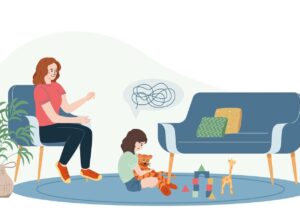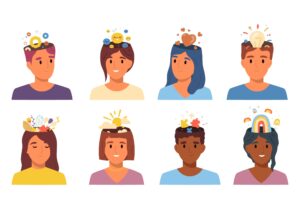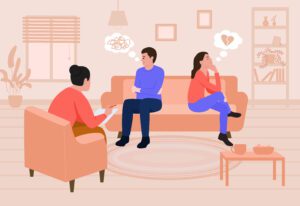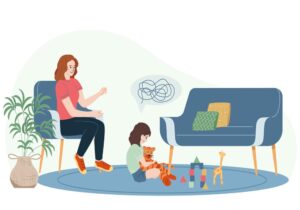Your Partner, Your Symptom ! A Different Way of Seeing Relationships
This article has been researched and written by Yassine Tayie. AI has not been used in producing this article.
This is an invitation to look at relationships from a different perspective, inspired by Jacques-Alain Miller’s thesis, “The Partner as a Symptom.”
Let’s start with a quick definition of a Symptom: In Lacanian psychoanalysis: the symptom isn’t simply a fault, but it’s the way the subject’s system holds together; it’s what organises their system. It’s the ugly duct tape on a leak: seeing it disturbs you but tear it off before you get to understand it’s role, and you flood the house.”
Which brings us to today’s theme: partner-as-symptom. Seen through this lens, what we call “dysfunctional” in a relationship may be precisely what sustains it. Your partner might often be your symptom, «your duct tape». What most irritates you is tied to what draws you in.
Example: you’re meticulous; you like everything tidy. Surprised, you fall for someone delightfully chaotic. At first it’s charming; Move in together and, suddenly, you’re arguing about where things belong — while still oddly glued to each other. A duct-tape fit, if you like.
How does this operate in a relationship? What do we unconsciously seek?
Individuals don’t enter love with what they have so much with what they lack. “To love is a wish to be loved” – in that sense, each of us seeks to be loved for our leak — the bit the duct tape covers — rather than the functioning facade.
A simple (cliché) vignette : Let’s see how that might operate in a relationship.
For an “X” reason, Person A is looking for a partner — a duct tape — with the following description: “ someone who can provide for me.” In love-terms : “If my partner provides, they love me — then I feel loved.”
For a “Y” reason, Person B is looking for a partner — yes, their duct tape — with the following description: “ someone to provide for.” Love-terms : “If I provide, my partner loves me — then I feel loved.”
Once upon a time in Dubai — Fate, Tinder, Cupid, take your pick — Person A meets Person B. Match made. It works as long as A keeps asking and B keeps providing. The circuit runs; both feel loved.
When the symptom shifts:
We might think it’s all sorted, but then comes the challenging part.
Life happens, A or B are evolving; their symptoms start shifting – A wants to be more independent; B doesn’t want to define their worth through providing to other. Then the squeaks, the leaks, and the slips start:
B : “Oh, you only love me because of what I have, not because of who I am.” “I’m a person, not a wallet with legs!”
A : “I don’t want an allowance; I want to feel held.” “You buy things so you don’t have to be here!”
Then the relationship keeps leaking, evolves, finds another set-up, reinvents itself to keep going, or breaks. And what happens when it breaks? Well, if neither of the two knows the “X” or the “Y” reason we stated earlier, then guilt, anxiety, and insecurities fill that void.
What we take from it ?
Here’s the strange beauty: even when relationships are difficult — or gloriously singular — they’re chances to learn about ourselves, our symptoms, our X’s (exes) and our Y’s (whys).
- This only confirms the truth of these phrases we often hear — «My other half», «My life», «My loved one». It’s less an attempt to possess the other (still illegal, by the way) and more a way of saying the partner mirrors and sets in motion parts of myself I don’t quite have a hold of.
I hope you enjoyed this as much as I did writing it — take it as a cheeky challenge to think differently, not a license to start calling your partner ‘ my symptom ’ instead of ‘ my love ’.”
How to Talk to Your Child About Body Safety – Without Creating Fear
Body safety talks don’t have to be and shouldn’t be scary. When these conversations are calm …
ADHD in Girls vs. Boys: Why Symptoms Often Look Different
When people think of ADHD, they often picture a young boy bouncing off the walls, constantly moving, talking out of turn, or …
How Psychoeducational Assessments Help Shape Better Learning Plans in School
No two children are the same. Every child brings a unique mix of strengths, challenges, and ways of …
Can Relationship Counseling Work for Toxic Relationships?
Relationships can be complicated, emotional, and at times, painful. While every couple experiences ups and downs, some relationships …
10 Signs You May Have Anxiety
Anxiety is a normal and natural human response to stress, danger, or uncertainty. However, when anxiety becomes excessive, it can …
Child Sleepwalking and Talking: What You Need to Know
Childhood is a time of rapid development, filled with new experiences—and sometimes, surprising nighttime behaviors.
Questions a Child Psychologist Might Ask
When preparing for your child’s first appointment with a psychologist, it’s natural to feel curious—or even a little anxious—about what …
55 Love Questions for Couples to Deepen Your Relationship
In any relationship, communication is key. Whether you’re just starting out or have been together for years, asking meaningful
Stress vs. Anxiety vs. Burnout: How to Recognize the Difference
In today’s fast-paced world, understanding the differences between stress, anxiety, and burnout is crucial for …
Relocation Depression: Definition and Ways to Cope
Relocation depression, also known as moving depression, is a form of situational depression that arises from the stress …











